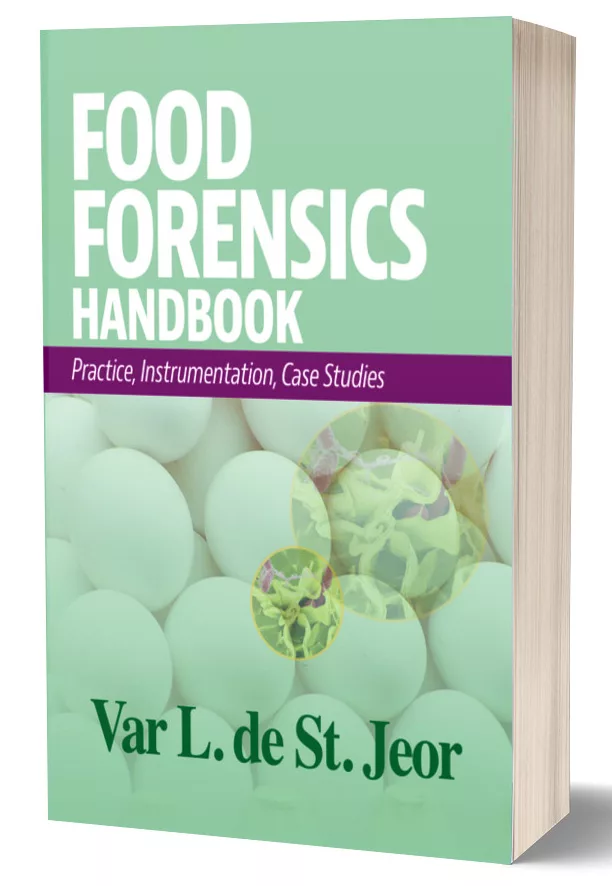Can Shipping Conditions Influence Your Listeria Test Results?
Environmental Listeria sampling is popular among food manufacturers because it greatly reduces the time and cost associated with end-product testing for the pathogen Listeria monocyto- genes. It also provides valuable information for determining how and where the contaminant is entering the food processing line. A December 2004 report by the U.S. Department of Agriculture’s Food Safety and Inspection Service (USDA FSIS) documenting the impact of the interim final rule for Listeria testing in ready-to-eat (RTE) meat and poultry production facilities found that “…plants have either initiated or greatly increased their testing for Listeria or Listeria-like organisms on plant surfaces that come in contact with products after cooking.” [1]
Increasingly, environmental samples are being shipped from plants to off-site laboratories that offer rapid, accurate testing methods, such as the DNA-based BAX® detection system (www.qualicon.com). Many large food manufacturers have switched from on-site to centralized labs and there is growing use of contract service labs by small food processors. The demand for more rapid methods and the overall increase in testing are also contributing factors.
Although much has been written about proper collection and testing techniques, little attention has been focused on the impact of shipping conditions on the recovery of pathogens. In a study presented at the 2004 AOAC annual meeting, Michael C. Bazaco reported that shipping environmental samples on ice resulted in stress and eventual death of Listeria cells.[2] This can potentially lead to an increased number of false-negative results, especially for testing methods with lower sensitivity, such as immunoassays. Although the sensitivity of the DNA-based BAX® system allows for greater reliability, DuPont Qualicon scientists wanted to determine the best way to protect enrichments so that Listeria would not be stressed—even under worst-case scenario conditions. They conducted a study to investigate the effects of overnight shipping conditions on environmental samples inoculated with Listeria.
Based on information from a major overnight shipping company, the harshest conditions that samples could reasonably expect to encounter during transport were determined to be temperatures of 55°C during summer months, for periods of up to one hour on a regular basis while loading and up to four hours in the event of mechanical problems with the plane. After takeoff, the temperature in shipping containers rapidly returns to a much lower temperature, but after landing, the temperature of the shipping containers could again spike for a half hour or more while the trucks are being loaded.
For this study, three sets of enrichments were set up as follows:
1. A set of sponges hydrated with Dey/Engley (D/E) neutralizing broth were inoculated in triplicate with four levels of two Listeria strains (L. innocua and L. monocytogenes), and then placed into 35 mL of BAX® system media for Listeria. The enrichments were placed in a cooler (typically used to transport reagents) with six room-temperature ice packs and a thermometer. The cooler was sealed with tape inside a cardboard box and placed inside an incubator set at 55°C for 4.5 hours to simulate heat abuse during shipping. An additional thermometer was placed in the incubator, outside the cooler.
Following high-temperature incubation, the cooler was placed on a lab bench for 14 hours, then opened and placed in a 37°C incubator for 26 hours. Readouts from the thermometer inside the cooler showed a maximum reading of 39.2°C. The enrichments were then tested with the BAX® system. Following another 24 hours of incubation, the enrichments were plated onto MOX plates for culture-based confirmation.
2. The second set of enrichments was set up under the same conditions, with two exceptions. First, frozen ice packs, which are the current standard industry practice for shipping enrichments, were substituted for the room-temperature ice packs. Second, the cooler was placed on a lab bench for 18.5 hours (vs. 14 hours) before being opened.
3. For the third set of enrichments, sponges were inoculated as above, but not placed in a cooler. Instead, samples sat at room temperature on a lab bench for 14.5 hours before being placed in a 37°C incubator for 26 hours. The enrichments were then tested by the BAX® system and plated for confirmation.
Results showed that enrichments packed with room-temperature ice packs (set #1) and those held at room temperature (set #3) showed fewer false-negative results at all levels than those packed with frozen ice packs (set #2).
These results are significant because they show that the current industry practice of shipping samples overnight with frozen ice packs is not the best method. Instead, shipping with room-temperature ice packs, which have less impact on Listeria growth rates, reduces potential problems with false-negative results. The use of sensitive testing methods, such as the BAX® system, coupled with selective enrichment media specifically designed to maintain accuracy and improve time-to-result, are important steps that food manufacturers can take to ensure the most value from rapid testing methods.
www.qualicon.com
References
1. Cohen, S. “Report Finds Listeria Rule Sparks Major Industry Changes.” News release, Dec. 1, 2004. www.fsis.usda.gov.
2. Bazaco, M.C. “Quantitative recovery of L. monocytogenes and Salmonella enterica from environmental sampling media.” Thesis submitted, Virginia Polytechnic Institute and State University. Dec. 13, 2004.
Looking for quick answers on food safety topics?
Try Ask FSM, our new smart AI search tool.
Ask FSM →






